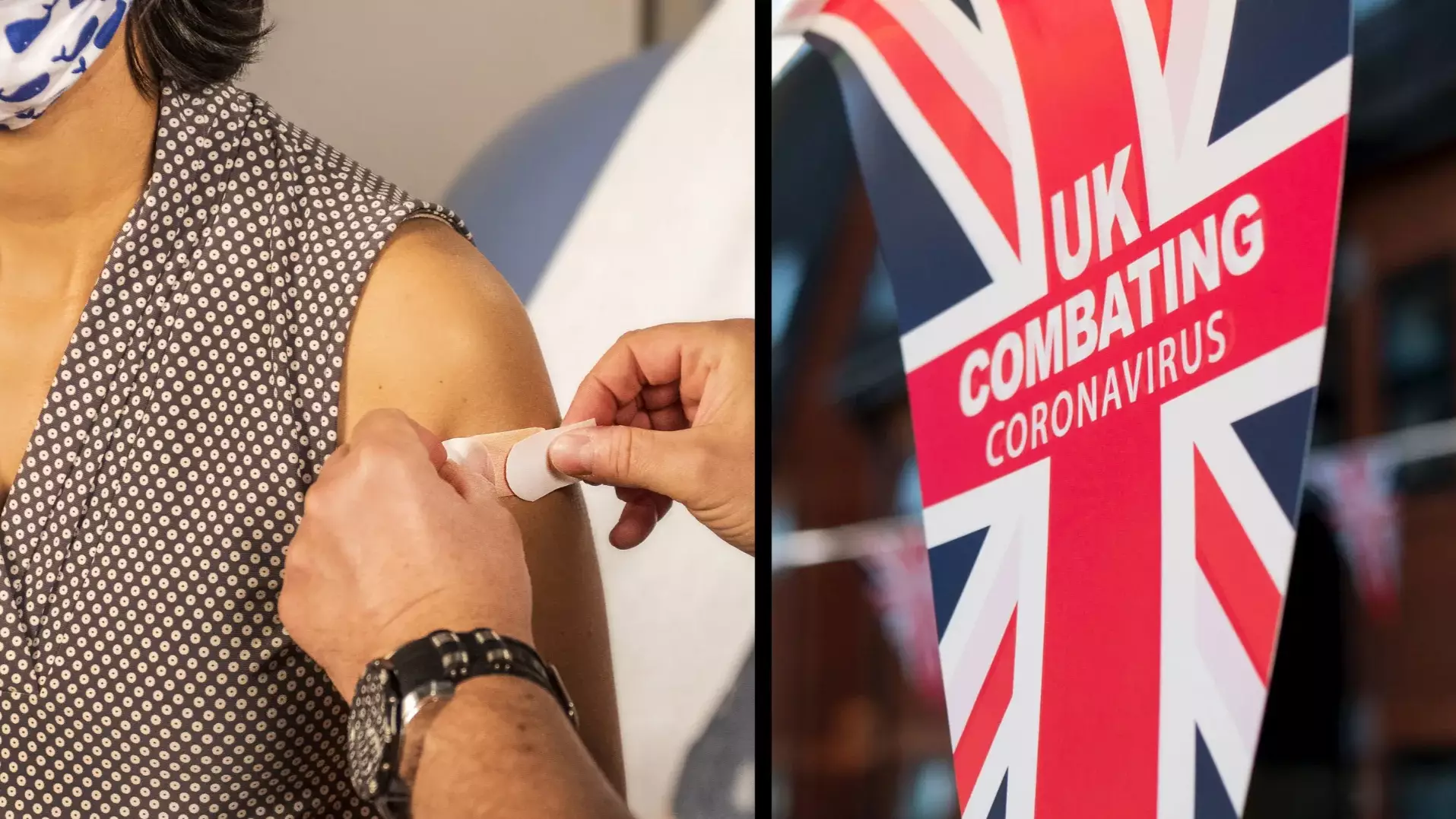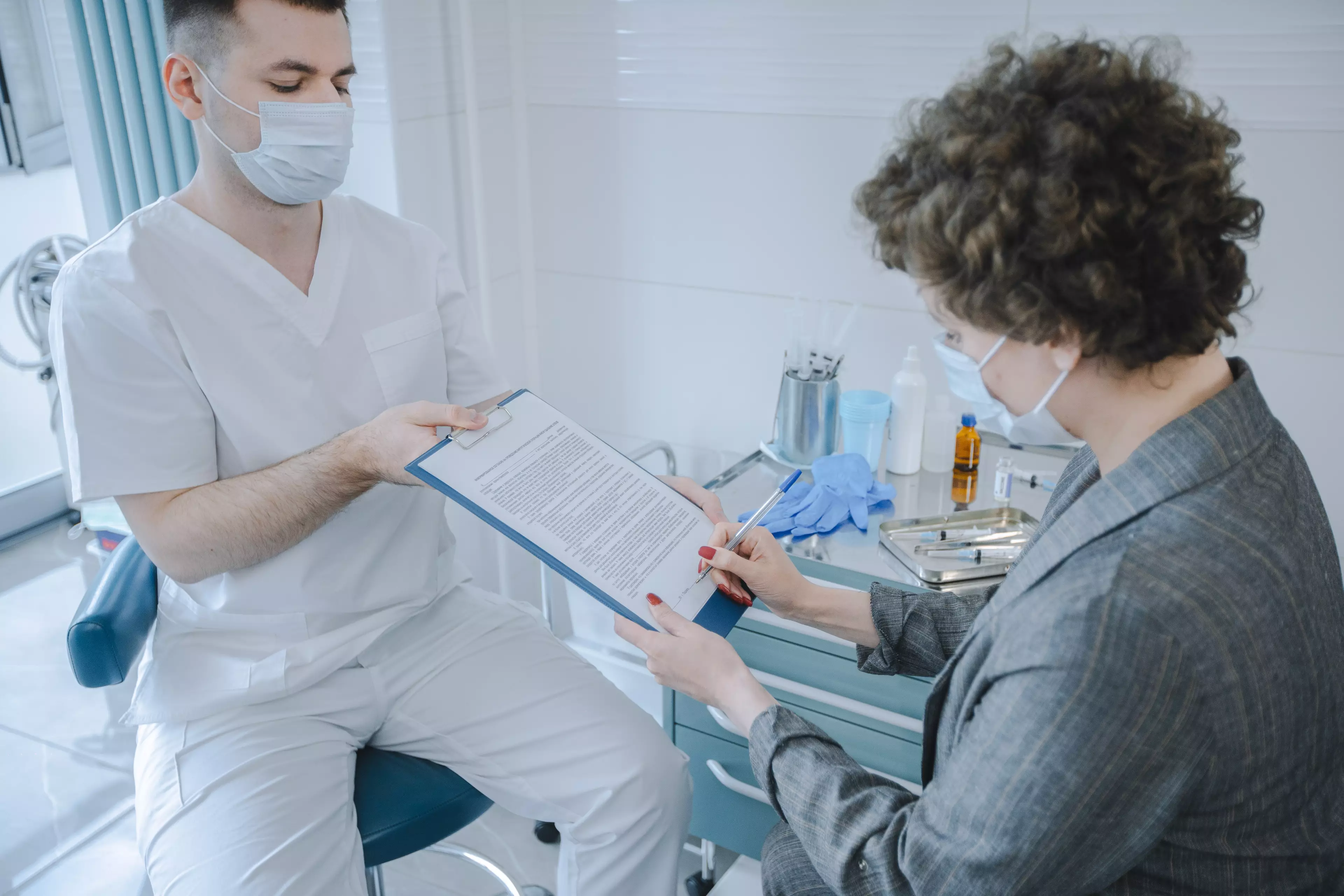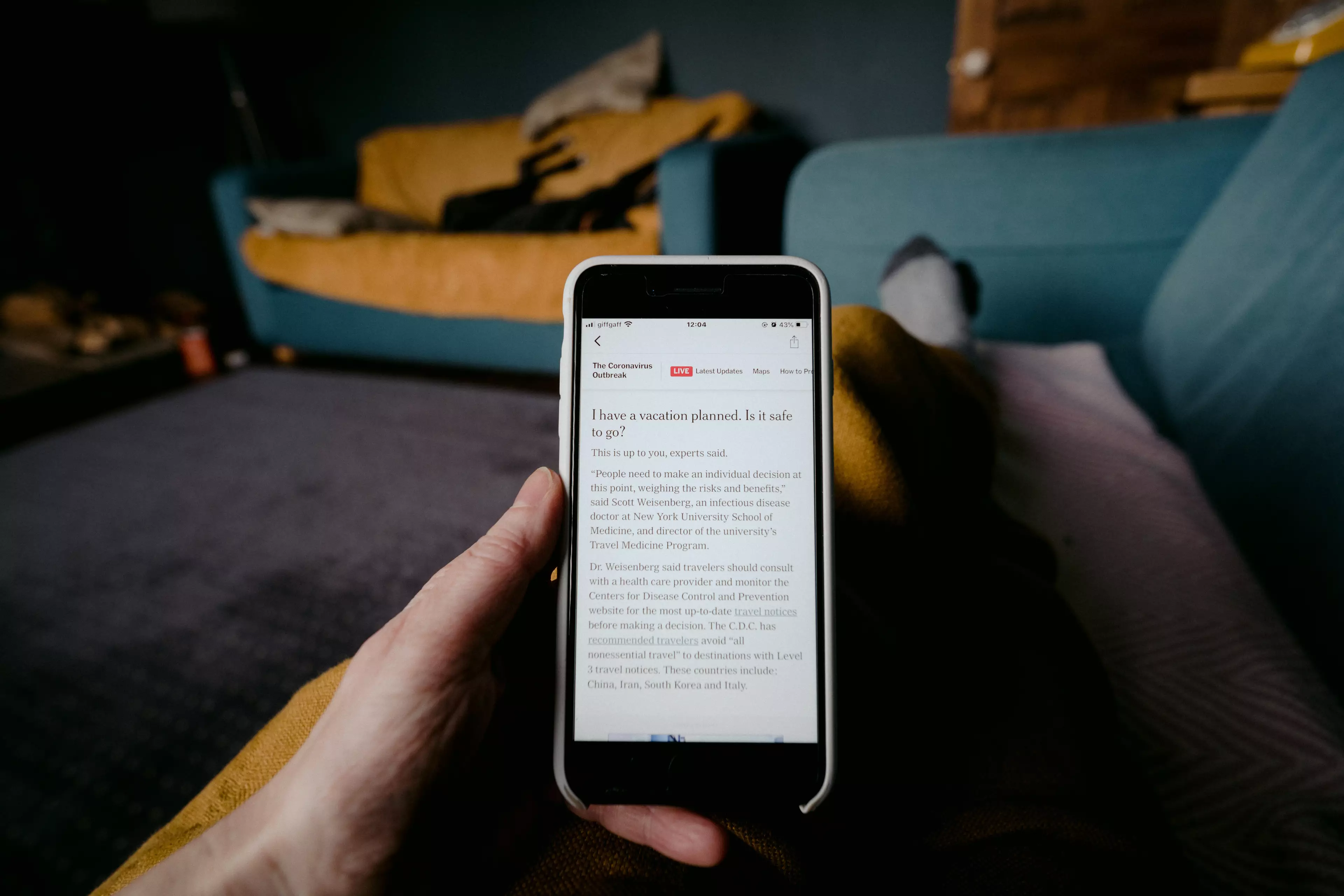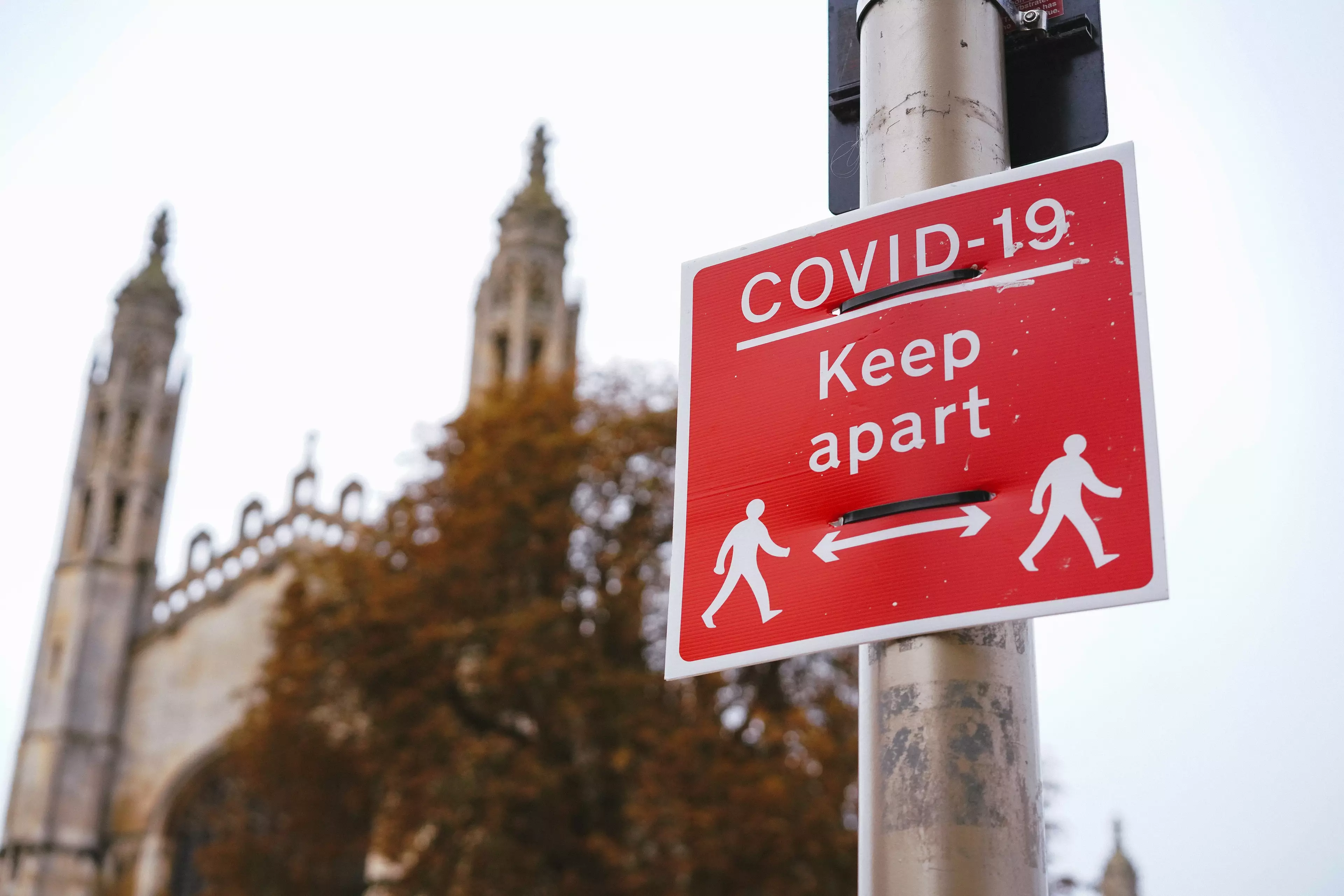
The arrival of the COVID-19 vaccine has been truly unprecedented. Under normal circumstances, developing one of these things can take anywhere up to 15 years, and yet here we are, in the midst of a global vaccine rollout, barely a year after the word 'coronavirus' first slithered its way into our unsuspecting, pre-pandemic ears.
But how? In short, it's an example of what's possible when every scientist on the face of the Earth puts their heads together. Still, whenever people are asked to have a needle stuck in their arm at short notice, questions are bound to arise.
Some of these questions are perfectly reasonable: 'Is there a chance I might feel a bit ropey for a day or two after my jab?'
Advert
To help allay your fears, we've answered some of your burning questions about the jab with the help of the NHS. From blood clots to fertility, here's everything you need to know.

I'm concerned about blood clots
Advert
There's been a lot of talk regarding blood clots and the AstraZeneca vaccine, and while the evidence does show a slightly increased risk, the chances of experiencing blood clots is still only approximately four in a million - so extremely rare.
The Medicines and Healthcare products Regulatory Agency (MHRA) is now issuing updated guidance to healthcare professionals on how to further reduce the risk and there's also advice on symptoms for vaccine recipients to keep an eye out for in the days following the jab.
It's also worth noting that the independent Joint Committee on Vaccination and Immunisation has advised that it is preferable for adults aged under 30 with no underlying conditions to be offered an alternative to the AstraZeneca vaccine where available
Should I be concerned about how quickly the vaccines were developed?
Advert
In a word, no. The authorised vaccines have been through three strict stages of clinical trials and have been tested on tens of thousands of people around the world. A Phase 3 COVID
vaccine trial typically involves 30,000 to 40,000 patients, all of whom are recruited in advance to speed the process up.
To make things even faster, trial phases were designed to overlap, and government funding meant the usual wait for investor decisions wasn't an issue. Add that to the fact the National Institute for Health Research (NIHR) made the trials its top priority and you begin to get a measure of how the process was safely accelerated.
The University of Oxford has made a handy video explaining the whole thing clearly, which you can check out here.

Will I experience any side effects?
Advert
There's no medicine on Earth that doesn't carry a certain degree of risk in terms of side effects. It's simply the nature of the beast. Naturally, vaccines are no different, but the good news is that any potential side effects are typically mild and short-lived, and not everyone experiences them.
You may not feel any ill effects at all after your vaccine, but if you do it will most likely manifest as one or more of the following:
o A sore arm where the needle went in
o Feeling tired
Advert
o A headache
o Feeling achy
o Feeling or being sick
o A temperature or fever for a few hours
You can take painkillers such as paracetamol if you need to. If your symptoms get worse or you're worried, call 111
Why are young people being given a different vaccine?
The benefits of vaccination continue to outweigh the risks, but the MRHA is advising that consideration should be given to those who may be at an increased risk of blood clots from the AstraZeneca vaccine.
Data suggests a slightly higher incidence (although still extremely unlikely) in the younger adult age groups and the Joint Committee on Vaccination and Immunisation is currently advising that those aged under 40, who aren't at increased risk of severe COVID-19, should be offered an alternative vaccine, if one is available.
The best thing to do if you are worried about the risk is to read up on the MHRA advice and make an informed decision.
Is the vaccine safe?
Yes. All our COVID-19 vaccines are safe and effective. They are already estimated to have saved over 14,000 British lives and will play a huge role in bringing the virus under control in the long term.
Do I still need to social distance after my vaccine?
Yep, you do. It's frustrating, but unfortunately no vaccine can grant you or those around you total invincibility. There is still a risk (albeit a reduced one) of transmission, so it's absolutely crucial that everyone continues to respect COVID-19 restrictions, whether they have been vaccinated or not.
This means it is important to:
o Continue to follow social distancing guidance
o Wear a face covering and remember hands, face, space and fresh air
o Cut down on your interactions with other people.

How long will I be protected for?
It's still too early to give a definitive answer on this but the effectiveness of the vaccine is being closely monitored by Public Health England (PHE). It could be a while before there's enough data to paint the full picture but for now the best course of action is to exercise caution and respect the official guidance, even after you've been fully vaccinated
Everyone else is getting the vaccine, why should I if I'm young and healthy?
Unfortunately, everyone is at risk from COVID-19, whether young and healthy or otherwise. Vaccinated people are less likely to catch the virus, less likely to develop symptoms if they do and there is increasing evidence that they are less likely to spread it around.
Vaccines are our ticket back to some semblance of normality, but they only work if everyone is on board. They've already saved thousands of lives and can save millions more, provided people continue to get them.
Does the vaccine affect fertility?
No. There is absolutely no evidence to suggest that the vaccine affects fertility. In the words of Deputy Chief Medical Officer for England, Jonathan Van-Tam: "This is a nasty scare story designed to frighten people. It is simply untrue and there is no shred of credible evidence to support the idea. The British Fertility Society (BFS) and Association of Reproductive and Clinical Scientists (ARCS) say there is absolutely no evidence, and no theoretical reason, that any of the vaccines can affect the fertility of women or men."
If you are already pregnant and are eligible for the vaccine, you can take a look at this information sheet provided by the Royal College of Obstetricians and Gynaecologists (RCOG).
Are there animal products in the vaccine
Nope. As confirmed by the MHRA, there are no components of animal origin in the AstraZeneca, Pfizer/BioNTech or Moderna COVID-19 vaccines.
Featured Image Credit: